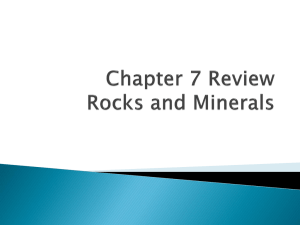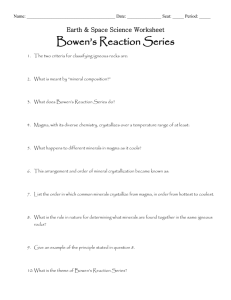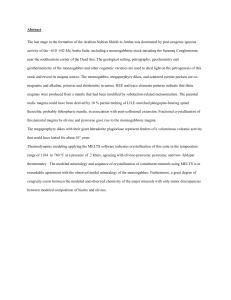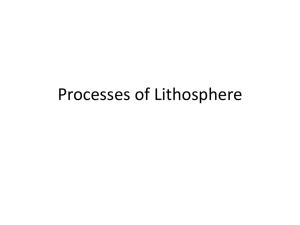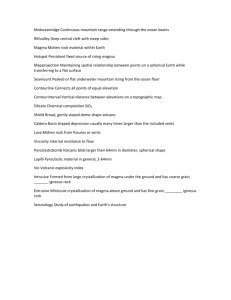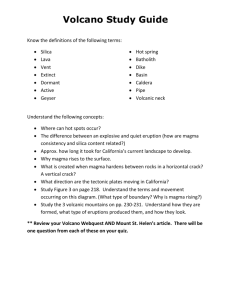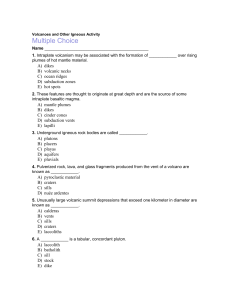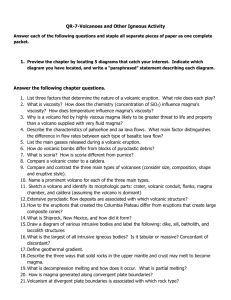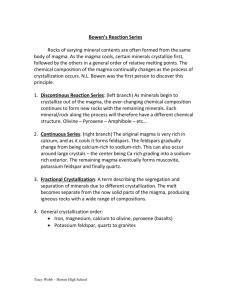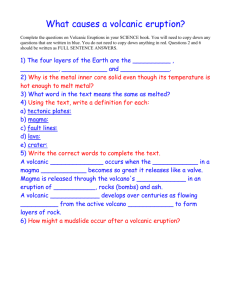The Rock Cycle
advertisement
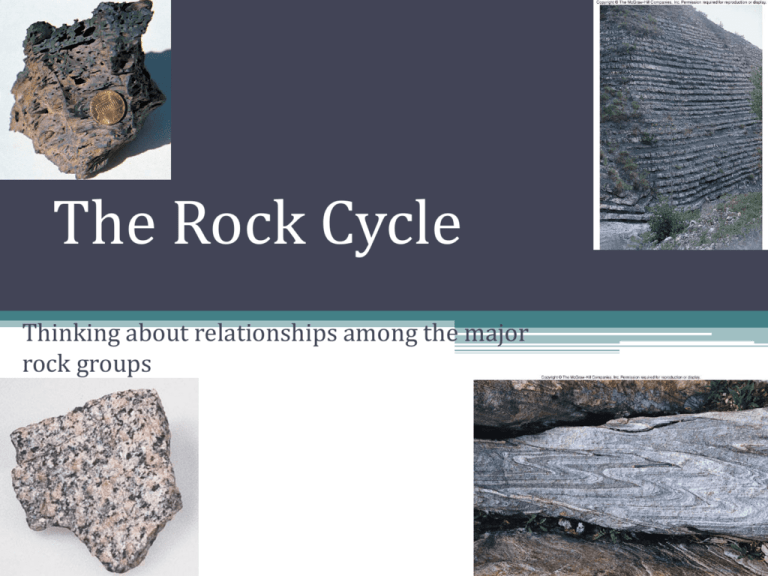
The Rock Cycle Thinking about relationships among the major rock groups 2 Major Rock Groups • Igneous • Formed from a melt (molten rock) • Plutonic (intrusive):slow cooling and crystallization • Volcanic (extrusion): quick cooling at the surface • Sedimentary • Formed at the Earth’s surface • Clastic (Mineral Fragments or grains, clays) • Chemical (crystalline chemical/biochemical precipitates) • Metamorphic • Changed by pressure, temperature and fluids. Fig. 2.9 MAGMA 4 IGNEOUS Crystallization MAGMA 5 IGNEOUS Plutonic Crystallization MAGMA 6 Volcanic IGNEOUS Plutonic Crystallization MAGMA 7 Weathering Volcanic IGNEOUS Plutonic Crystallization Uplift MAGMA 8 Weathering SEDIMENT Volcanic IGNEOUS Plutonic Crystallization Uplift MAGMA 9 Weathering SEDIMENT Erosion Transport Deposition Volcanic IGNEOUS SEDIMENTARY Plutonic Crystallization Uplift MAGMA 10 Weathering SEDIMENT Erosion Transport Deposition Volcanic IGNEOUS SEDIMENTARY Plutonic Crystallization Uplift MAGMA 11 Weathering SEDIMENT Erosion Transport Deposition Volcanic IGNEOUS SEDIMENTARY Plutonic Increased P&T METAMORPHIC Crystallization Burial Uplift MAGMA 12 SEDIMENT Weathering Erosion Transport Volcanic Can you see IGNEOUS any shortcuts? Deposition SEDIMENTARY Plutonic Increased P&T METAMORPHIC Crystallization Melting Uplift MAGMA Burial 13 14 Weathering SEDIMENT Erosion Transport Deposition Volcanic IGNEOUS SEDIMENTARY Plutonic Increased P&T METAMORPHIC Crystallization Melting Uplift MAGMA Burial In Conclusion… • • • • • • The rock cycle demonstrates the relationships among the three major rock groups It is powered by the interior heat of the Earth As well as earth’s momentum and… The energy from the sun It involves processes on the Earth’s surface as well as the Earth’s interior It connects the “hydrologic cycle” with the “tectonic cycle”. 17 Weathering SEDIMENT Erosion Transport Deposition Volcanic IGNEOUS SEDIMENTARY Plutonic Increased P&T METAMORPHIC Crystallization Melting Uplift MAGMA Burial
